
via: Pexels / Arina Krasnikova
In this post, we're breaking down all the social types of relationships.
I specialize in relationship dynamics, from knowing the signs of a toxic relationship to dealing with emotional neglect in marriages.
In my years working with men and women, perhaps one of the most interesting things to talk about is the close relationships they create with different people.
In this feature, we'll be discussing the different types of relationships so you can always cultivate a healthy one.
Contents
Social Relationships Are Important For Our Survival And Well-Being

via: Pexels / cottonbro studio
An interpersonal relationship simply pertains to the social connection we make with the people in our lives, and I'm not just talking about romantic relationships.
An interpersonal relationship could be a friendship, an open relationship (such as in the case of a polyamorous relationship), a casual relationship that could have intimacy but still not quite a committed relationship, or a codependent relationship.
I know. Relationship dynamics can be complicated. That is why it's important to get to know each one of them. And if you consider yourself a lone wolf, that may not always be true because the truth of the matter is that no man is an island.
Our social relationships provide us with a sense of belonging, purpose, support, and, surprisingly, a long life. Researchers who studied nearly 7,000 people over a nine-year period found that those with more social ties tended to live longer regardless of their socioeconomic status and lifestyle. That's because healthy and supportive social relationships keep our stress-response system in check.
So if you want to build a healthy relationship, be it with a friend or a romantic partner, keep reading!
Different Types of Relationships You Need To Know

via: Pexels / Kampus Production
Most of the time, men and women come into a relationship without having any idea what they're getting into, and when they do, they often get stuck feeling confused or disappointed.
You see, knowing the type of relationship you have with other people helps you set your expectations and protects you from getting into an unhealthy relationship or, worse, an abusive relationship.
More than that, knowing the common relationship types also makes you a better partner or a friend and helps you honor your commitment to each and every one of them.
1. Platonic

via: Pexels / Arina Krasnikova
This common relationship type is what we all know as friendship.
A platonic relationship is a relationship type that involves two or more people sharing a close bond without having any sexual intimacy.
According to licensed clinical psychologist Emily Guarnotta, a platonic relationship involves respect, love, admiration, loyalty, honesty, and a bond rooted in common interests and beliefs. Simply put, platonic love exists when there is a sense of trust, safety, and validation between close friends.
Compared to having a romantic partner, friendships are more relaxed because there are fewer expectations and pressures and a more secure connection as there isn't a fear of breakup.
2. Casual

via: Pexels / Pavel Danilyuk
We've all had a friend describe their dating life as just casual. You know, that "we're seeing each other, but it's not exclusive" type of thing.
A casual relationship is a relationship dynamic where two people spend time together, sometimes going on dates, but not having the exclusive label of a committed relationship. Casual daters often pursue this kind of partnership to maintain an independent sex life or simply because they're just not ready to be in a long-term relationship.
This type of partnership can only be successful when both parties set both of their intentions clearly and have consented to each of them.
3. Romantic

via: Pexels / Trần Long
A romantic relationship or romantic love is defined as the mutual and voluntary interaction between two people that is often ignited by expressions of affection and emotional intimacy. According to psychologist Robert Sternberg, there are four phases of romantic love: infatuation, disillusionment, challenges, and mature love.
Infatuation is what we all know as the honeymoon phase. This is the stage of a budding relationship where our dopamine levels, also known as the "feel-good" chemicals, are at an all-time high. This makes us feel elated, giddy, and euphoric toward our love interest.
Disillusionment, on the other hand, is described as the phase where infatuation wears off, and we start noticing the flaws in our partner. During this stage, both individuals must set their standards and lay out their needs and expectations in a romantic relationship. Doing so will help you, and your significant other become the best partners to each other.
Of course, every couple goes through a rough patch. This is where the challenges come in. Getting through a rough patch requires a great deal of compromise, constant communication, and active listening. A couple who can handle roadblocks indicates that the relationship can evolve into something more long-lasting and stable.
Finally, mature love is a tried-and-tested type of relationship. People in long-term relationships or successful marriages remain together because they both want to stay together. Mature love involves acceptance, emotional support, commitment, calmness, respect, caring, kindness, friendship, and consideration.
4. Open

via: Pexels / Pavel Danilyuk
An open relationship is an intimate relationship that involves two or more romantic partners.
This type of partnership is also called a polyamorous relationship, because it's different from a monogamous relationship in the sense that this dynamic involves two consenting adults allowing each other to engage in romantic or sexual activities outside of the relationship.
Celebrities who have been in open relationships include Shailene Woodley, Angelina Jolie, Brad Pitt, Will Smith, and Jada Pinkett Smith.
5. Codependent
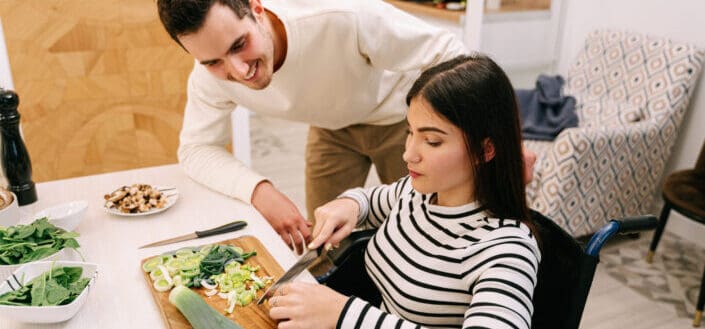
via: Pexels / Ivan Samkov
A codependent relationship is a kind of unhealthy relationship where one person takes the role of the caretaker while the other person plays the enabler.
Codependent relationships are often described as toxic partnerships because they usually involve a power imbalance, causing each person to either abandon themselves or take the other for granted.
Some signs of a codependent relationship include feeling constantly anxious about meeting your partner's needs, depending on your partner to feel okay, doing anything (even if it makes you uncomfortable) for your partner's approval, and not feeling safe in your relationship.
6. Situationship

via: Pexels / Kampus Production
Another type of toxic relationship that I would describe as the purgatory of relationships. You wouldn't really know where you stand with this one- not until you ask, that is- and that could be a pretty tall order if you're dating an emotionally unavailable person.
It's more than friendship, but it's not a committed relationship either. Simply put, it is undefined. Each person gets the benefit of intimacy but not the exclusivity of being in a loving and sincere relationship.
If you've been seeing someone for a while now but still hasn't put a label on it, you might want to sit down and define the relationship.
7. Toxic
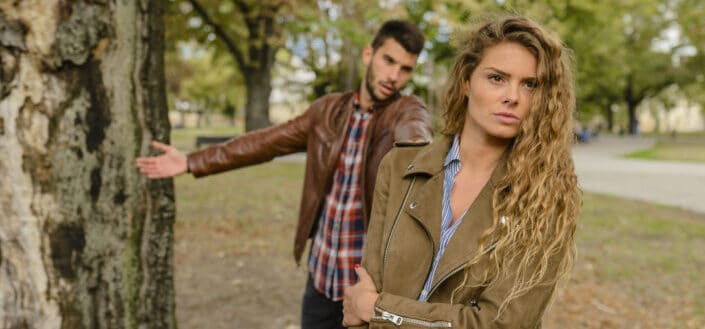
via: Pexels / Vera Arsic
Do I really need to tell you what this is? A toxic relationship is an abusive relationship where you'll often feel taken for granted, gaslighted, controlled, unsupported, disrespected, lied to, and unsafe.
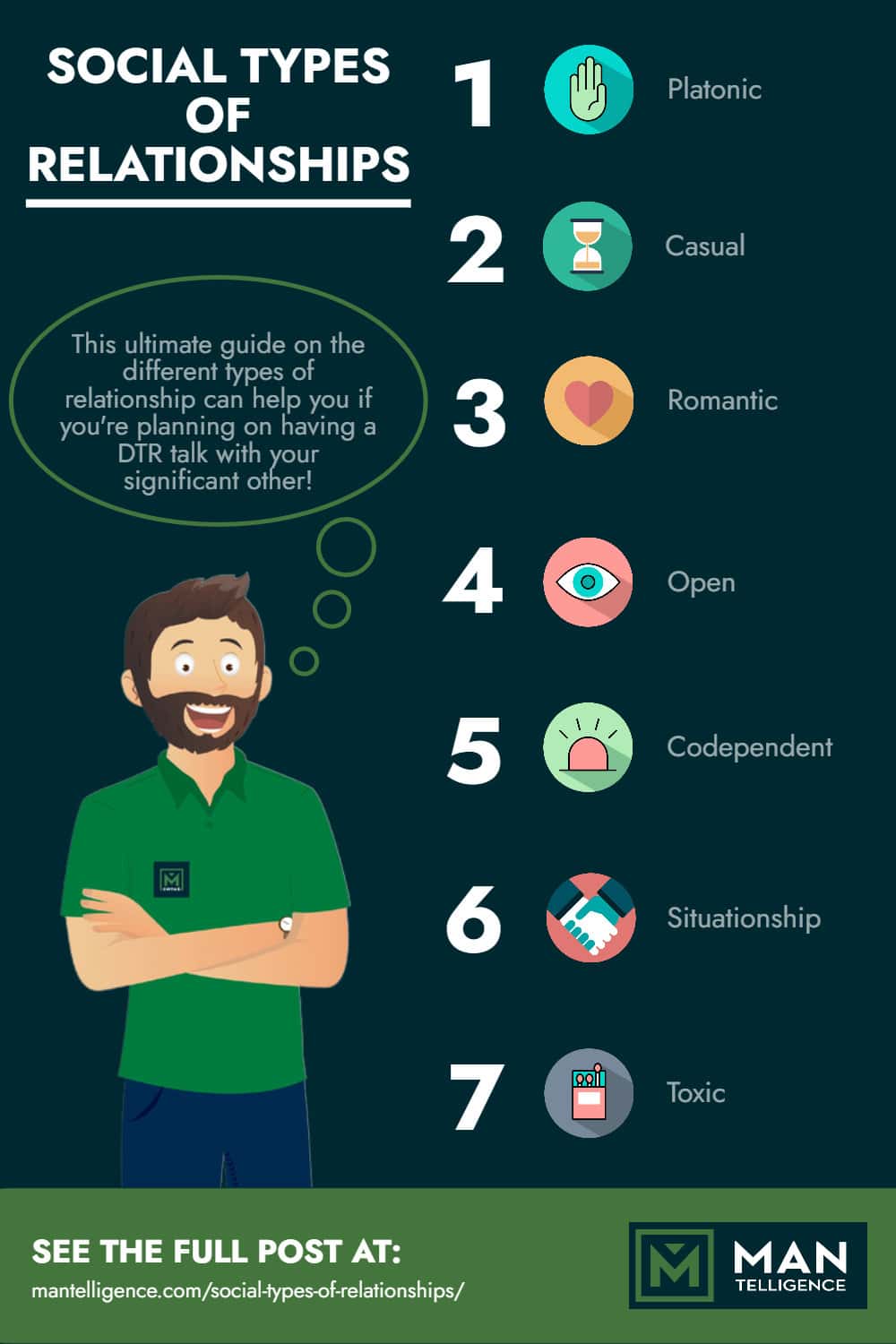
via: Mantelligence
How To Define A Relationship
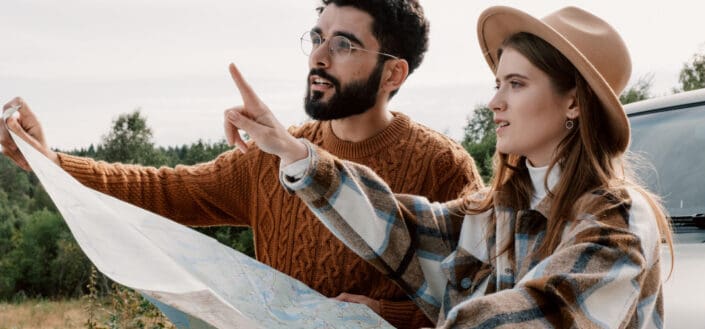
via: Pexels / cottonbro studio
Whether you're in a causal, open, or monogamous relationship, it goes without saying that setting clear boundaries and expectations is a must if you want to maintain a healthy relationship with your partner. Taking the time to figure out how you both feel for each other protects you from getting into an unhealthy partnership and ensures that you're both getting what you want from a romantic partner.
1. Know when it's time to define the relationship.

via: Pexels / Kampus Production
According to life coach Tess Brigham and psychotherapist Beth Sonnenberg, there really is no specific time to define a relationship. The right time to have a "DTR" talk should primarily depend on how you feel about the other person. Ask yourself, are you happy with your current dynamic, or are you unsure where you stand with that person?
According to Brigham, if you feel the urge to know where you fit in the other person's life, that's almost always a green flag that you aren't where you want to be in your current setup.
2. Figure out what you want out of the relationship.

via: Pexels / Vince Andrada
Before you go ahead and talk to the other person, it is important to assess what you want and define what you really want from a relationship and your partner. Doing so will make it easier to plan your talking points and help you explain your side better.
3. Hope for the best but prepare for the worst.

via: Pexels / Manuel Guillén Vega
Life doesn't always go our way, so it's always best to remember that the other person might not want the same thing as you do.
If, for instance, you want to be in a committed relationship with the person you're dating, and he reveals that they're not into the idea, being prepared for the worst will make your fall just a bit less painful. Cue Bonnie Raitt's 'I Can't Make You Love Me."
4. Engage in a mindful conversation.

via: Pexels / RODNAE Productions
In case you still need to be made aware of it, the way you express your thoughts and feelings is as important as your actual words.
Engaging in a mindful DTR talk will make it easier for the other person to understand your point of view and help them feel more comfortable explaining theirs. Be careful not to push too hard or make it out as a potential confrontation so the person wouldn't feel threatened.
I suggest asking open-ended questions such as, "How do you feel about me?" instead of asking questions answerable by yes or no. Doing so will give the other person more freedom to explain their point of view.
Another tip is to use "I" statements. Phrases like "I like you" and "I would love to spend more time with you" are more specific and highlight what you feel, giving the other person more space to respond to you.
Frequently Asked Questions
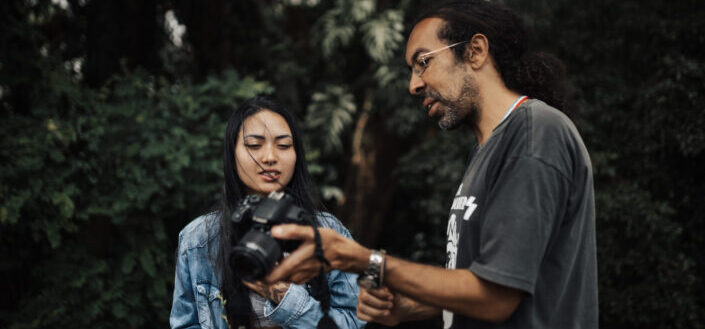
via: Pexels / Matheus Bertelli
I've answered some more frequently asked questions to help you familiarize yourself with the different types of relationships and how to maintain each one.
What are the types of relationships according to Psychology?
In psychology, the four basic types of relationships include family relationships, friendships, acquaintanceships, and romantic relationships.
Other types of relationships include sexual relationships, work or professional relationships, community or group relationships, place-based relationships such as neighbors or roommates, and enemies or rivals.
What are the most important things in a relationship?
The most important part of a relationship is the emotional intimacy you share with the other person. Sharing emotional intimacy with a romantic partner, a friend, or a family member means that you've allowed yourselves to be vulnerable towards each other and can share and express your thoughts and feelings without judgment.
What makes a good relationship?
A good and healthy relationship involves honesty, trust, respect, and open communication between partners. A good relationship also requires a lot of effort, compromise, and, surprisingly, enough space to pursue individuality.
How to move on from a bad relationship?
If you ever find yourself in the middle of the night thinking, "I miss my ex," do everything except call him. It's easy to throw caution at the wind, but you must remember that an ex is an ex for a reason.
You broke up because you couldn't make the relationship work. It would have if you were both willing to make it work, but if only one of you is fighting for it, you're fighting for a lost cause.
If you want to move on from a bad relationship, the best you can do for yourself is to focus on your growth and healing. Find yourself again by doing things that make you smile and more alive than you were with your ex. Commit to taking care of your well-being and learning from past mistakes.
While you're at it, check out this article, where we discuss what to do after a breakup on our site.
More Awesome Articles About Relationships
Got more dating woes you want to deal with? Check out these awesome articles guaranteed to level up your dating game.
- Trying to sweep a girl off her feet? Check out this article, where we teach you how to make a girl fall in love with you.
- Got zero wooing games? Don't fret. This article will teach you how to approach a girl.
- Valentine's day is just around the corner. This list of romantic things to do for your girlfriend will give you a lot of awesome ideas.





